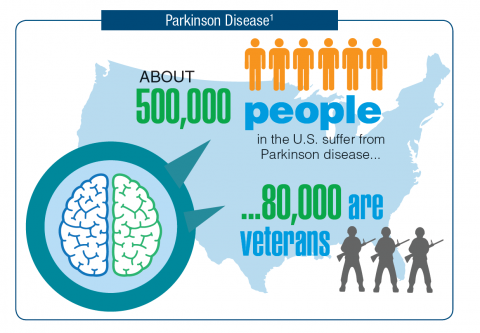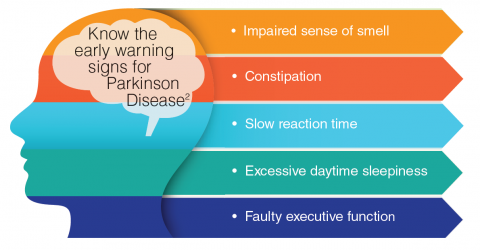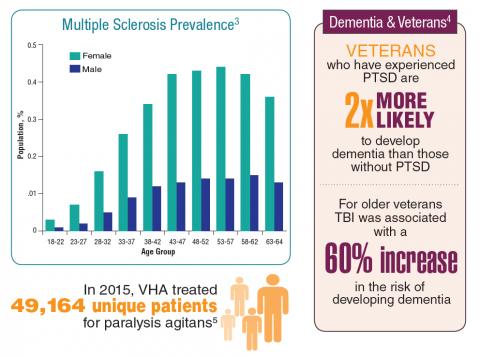Neurologic disorders seem to impact veterans disproportionately. Multiple sclerosis, Parkinson disease, dementia, epilepsy, and other less common neurologic disorders require a high-level of care for veterans.
Multiple sclerosis is often diagnosed when patients are in their 20s or 30s. Typically, MS affects women more than men at a rate up to 3 times higher, and studies have shown that race and geography also may play a role in the risk of acquiring MS. Rates of MS in Vietnam era veterans were higher than those of veterans of World War II and the Korean War. That trend continued for Army and Air Force Gulf War veterans.
Veterans who were exposed to Agent Orange and go on to develop Parkinson disease are eligible for benefits without proving service connection. About 16% of the half million Americans with Parkinson disease are veterans.
Veterans also face increased risk of dementia. There is evidence that Parkinson disease, posttraumatic stress disorder, and traumatic brain injuries are all risk factors for developing dementia.



